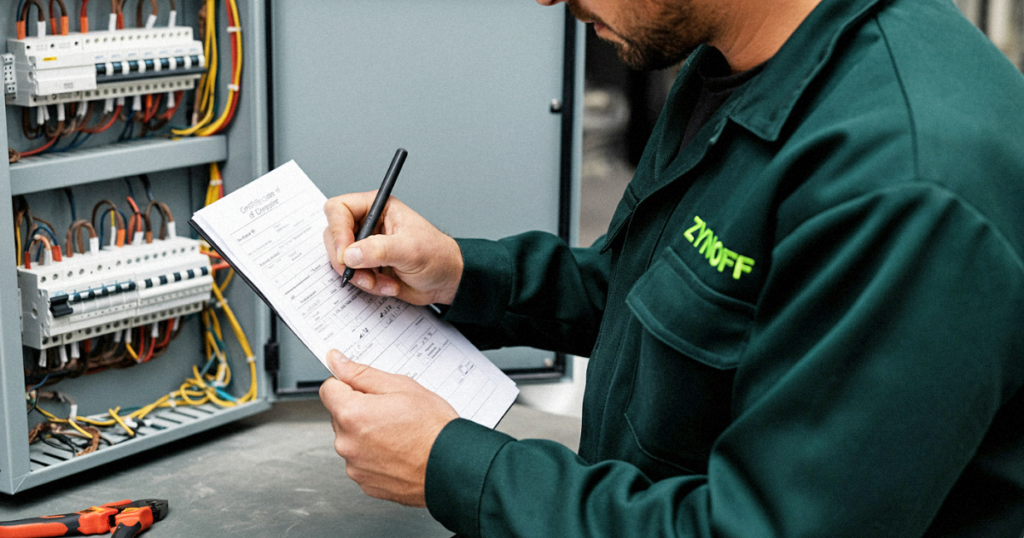Electricians are vital in keeping New Zealand powered, ensuring homes, businesses and industries run smoothly and safely. As demand for skilled professionals in this field continues to rise, electricians enjoy a respected position in the workforce, reflected in their competitive salaries. In this comprehensive guide, we’ll delve into the earning potential of electricians across New Zealand, uncovering the factors that shape their pay, opportunities for career growth and insights into the broader employment landscape.
Average Salary of Electricians in New Zealand
Electricians’ wages differ according to their skills, specialisation and experience. As of 2024, the figures reflect the robust demand for skilled professionals.
- Average annual salary: NZ$78,000
- The hourly rate range is NZ$31–NZ$51, though some earn up to NZ$63 per hour.
Salary Insights by Experience Level
An electrician’s earning potential grows with time and expertise. Below is a breakdown of average salaries according to experience:
- Entry-Level (0–5 years): NZ$40,000–NZ$50,000 per year
- Mid-Career (5–10 years): NZ$60,000–NZ$70,000 per year
- Experienced (10+ years): NZ$70,000–NZ$95,000+ per year
Electricians’ Salaries by City
Location significantly influences electricians’ earnings, with variations based on local demand and cost of living. Below is a review of salary ranges across key cities in New Zealand:
| City | Hourly Rate (NZ$) | Annual Salary (NZ$) |
| Auckland | 34 – 55 | 75,000 – 114,000 |
| Wellington | 34 – 52 | 70,000 – 108,000 |
| Christchurch | 33 – 50 | 68,000 – 104,000 |
| Hamilton | 30 – 48 | 66,000 – 100,000 |
| Tauranga | 30 – 45 | 62,000 – 94,000 |
| Dunedin | 29 – 44 | 60,000 – 92,000 |
The electricians seem to benefit from better remuneration in areas like Auckland and Wellington because of the high demand due to population size and higher living standards.
Factors Influencing Salaries
Several factors affect how much electricians earn in New Zealand:
- Experience: Senior electricians with advanced skills earn significantly more.
- Specialization: High-voltage systems and other niche areas command higher wages.
- Location: Urban centers and regions with higher demand offer better pay.
- Employment Type: Self-employed electricians or those in specialized contracting roles often earn more.
What Electricians Do
According to the Australia/New Zealand Standard Classification of Occupations, electricians perform various tasks to ensure electrical systems are safe and functional. These tasks include but are not limited to:
- Installation: Installing electrical wiring, equipment, switchboards, lighting, power outlets and fixed-wired appliances
- Maintenance: Maintaining electrical systems
- Repair: Repairing and replacing electrical wiring, parts and equipment
- Troubleshooting: Troubleshooting electrical issues
- Safety: Ensuring compliance with safety regulations and performing safety tests
- Documentation: Keeping records of problems and work performed
- Quoting: Preparing job and other quotes
- Interpretation: Interpreting electrical information on diagrams and plans
- Certification: Testing and certification
Becoming an Electrician in New Zealand
To become a qualified electrician, you’ll need to:
- Do an apprenticeship and get a New Zealand Certificate in Electrical Engineering Theory and Practice (Trade) (Level 4) OR Electrical Trade (Electricity Supply and General Electrical) (Level 4) or equivalent
- A Trainee Limited Certificate from the Electrical Workers Registration Board.
- Register with the Electrical Workers Registration Board.
Other admission requirements include a driver’s license, car ownership and positive drug test results. Secondary school schemes like trades academies and STAR (The Secondary-Tertiary Alignment Resource) may assist those who wish to become electricians.
Skills and Knowledge Required
Electricians need to be proficient in:
- Electrical theory, laws and safety standards
- Installation of wiring and fixtures
- Problem-solving and tool usage
Self-employed electricians must also have business skills.
Electricians may specialize in:
- Low-voltage work: Residential or commercial wiring.
- High-voltage work: Industrial Electricians work specifically in industrial settings, where heavy machinery and powerful systems are used. They often work with very high voltages, so accuracy and safety are important. An industrial electrician earns an average salary between NZ$90,000 and NZ$105,000 per year. The earnings usually depend on the complexity of the role and work experience.
Apprentice Electricians: A Steppingstone to Success
For aspiring electricians, apprenticeships offer a vital pathway into the industry. While starting salaries are modest, apprentices gain invaluable hands-on experience, leading to higher earnings over time:
- First-year apprentices: NZ$16–NZ$20 per hour
- By the fourth year: NZ$17–NZ$30 per hour
In 2024, the average hourly rate for apprentices stands at NZ$20.19. Rates are exceptionally high in cities like Auckland, where apprentices earn an average of NZ$29.98 per hour, reflecting increased demand and living costs.
What Do Apprentice Electricians Do?
An apprentice electrician has a significant position in an electrical organization as he or she learns on the job under a qualified electrician. They engage in many activities that enable them to achieve the skill level as a professional in this area.
Key Responsibilities
An apprentice operates under a licensed electrician’s supervision in installing, maintaining or repairing electrical systems. Their duties typically include:
- Installing electrical wiring: Within the wiring context, for receptacles, switches, transformers, or distribution boxes, accomplish the following tasks: measuring wiring, Measuring and cutting wiring to appropriate length and Installing wiring where required.
- Carrying out repairs: As and when necessary, diagnose faults on electrical-related matters and correct them accordingly.
- Adhering to safety standards: Implementing guidelines of a company and lawful requirements to work without creating risky conditions.
- Operating hand and power tools: Using tools to finish several installations and repairs effectively.
In conclusion, electricians are indispensable to the seamless operation of New Zealand’s infrastructure. They earn competitive salaries and the satisfaction of contributing meaningfully to the nation’s progress. Whether starting as an apprentice or advancing to specialized or managerial roles, the electrical trade offers a rewarding career path with ample opportunities for growth. With rising demand in sectors such as construction and manufacturing, becoming an electrician promises financial stability, career flexibility and the chance to make a lasting impact in a field that powers New Zealand forward.




